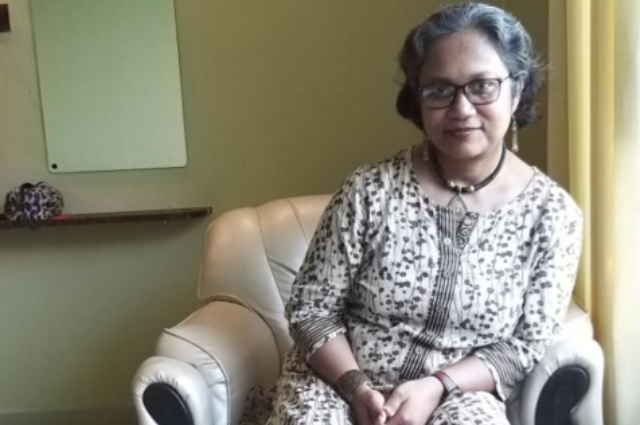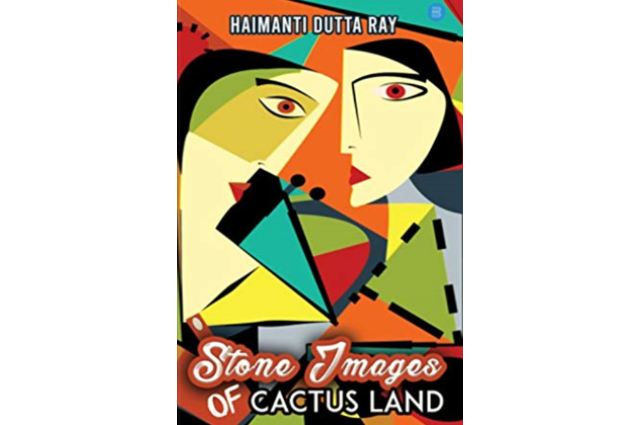
Almost every other day, we Indians witness rape cases on news channels and other mediums. This horrific crime has become so prevalent, that it feels like a culture of violence against women has always been there in our society. The intricacy of rapes in India is not just some legal issue, as we cannot ignore distinct social aspects related to it. And the book 'Stone Image of Cactus Land' talks about this deep-rooted rape culture in our society and the life of a rape victim in it. The book is based on a gruesome real incident that happened on the streets of Kolkata in 2012 when a young woman was brutally raped by 5 men. Writer Haimanti Dutta Ray has stunningly penned down a book that exposes the tragedies of a young rape victim, and a few other women supporting her to perceive justice. The writer has touched on a highly delicate topic in a truly brilliant and conventional manner. Throughout multiple incidents, it illustrates the tendency to see gender violence and misogyny in Indian society as an expression of culture and tradition.

This story creates an outspoken lens through which we can look at gender violence and its commonness in India. Kathakali, the protagonist of this story, is a young journalist working in Kolkata who is juggling between her new job, dreams, and connections. And as a part of her job, when Katha goes to interview Anne, a rape victim, life takes an extraordinary turn for both the women. In an environment where rape victims are often mocked and belittled, Katha comes as a beacon of hope in Anne's life. And then onwards, a grim battle begins against the orthodox society, complex laws, and Anne's own mind. The narrative gradually revolves around the significant impact of investigations, interviews, and the intensity of the crime on the prevailing life of Anne. It reaches on certain factors like how a monstrous crime was disregarded, and how Anne stays at a more inferior position of law, with fear, depression, guilt complex, and social stigma. There are countless things that can be done to support a rape victim, and Katha notably learns and reveals how a person should approach a rape victim. She understands that healing takes time, and supports Anne without any rush to settle the case. However, supporting Anne also occurs with a few challenges for Katha, but her courage keeps her going to support someone that she knows has gone through something so harshly unimaginable.
As a young journalist, we really can't imagine how challenging it was for Katha to be the voice of the movement against rape. With time, IPS Madhumita Som also takes an interesting entry in Anne and Katha's crusade to justice and makes big moves in her own way. Madhumita adds subtlety to Anne's case, with unapologetically practical work, packed with bravery, passion, and intelligence. Later, Katha also becomes more cautious in the matter as she walks forwards and discovers a life-changing lesson of life and death in her personal journey. However, the lives of these women still revolve around each other, with a goal to give justice to Anne within a society that is not yet willing to determine equal treatment of genders. During the comprehensive inquiry of Anne's case, the women realize that the wounds of rape aren't just physical, and they have to go through some mental trauma along with the misogynistic culture which is shaped by old age society traditions, modern strains, and social-political motives.
Anne, Katha, and Madhumita try to break the myths of Indian culture, which severely change the lives of rape victims in our society. Eventually, Anne tries to disassociate herself from her trauma, but she feels that her current life is falling apart due to something that has ruined her past. While she balances with her coping mechanisms from her ordeal of the rape, our justice system distresses her while the battle goes on. The fight against rape goes beyond the individual survival of Anne, and it impacts her closest relationship as well as influences communities and society at large.
The story gradually makes you realize how hard it was for Anne, and how her confusion and loss of self-worth consumed her, while flashbacks and tortures became a routine in her already messed up life. But when Katha and Madhumita fight for justice with Anne, they make a revolution in society. And this is exceptionally hard when you know you will face attack and ridicule for speaking up as women. But the story of these three women somehow guides us to seek justice at any cost to make this world a better place. It likewise describes the struggles that the women in the story experience, without giving up on fighting for justice and rights. These three women try their best to get the flavor of justice in their story, but the centuries-old systems which have always stood against women, and the lack of interest of society in this matter become the highest obstacles in their victory. The story deliberately weaves the questions in our minds about how our society treats women, and those questions somehow make us embarrassed of the society that we live in.
At times, the tragic story of Anne can be quite tough to read, as it can be frightening and emotionally draining for some, but it also reveals the true spirit of women who fight against the injustice which happens in our society. The Cactus Land is a strikingly powerful portrayal of the challenges that rape victims and women in general face in our country. Without any doubt, the story of this book can change anyone's insight about how our society really treats a particular gender. There's always that one thing that changes our perception about the things which regularly happen in our society. It could be a life experience, a trauma, a success, a quote, or a book like this, which can change our thoughts, and make us think again about which kind of world we really live in.
